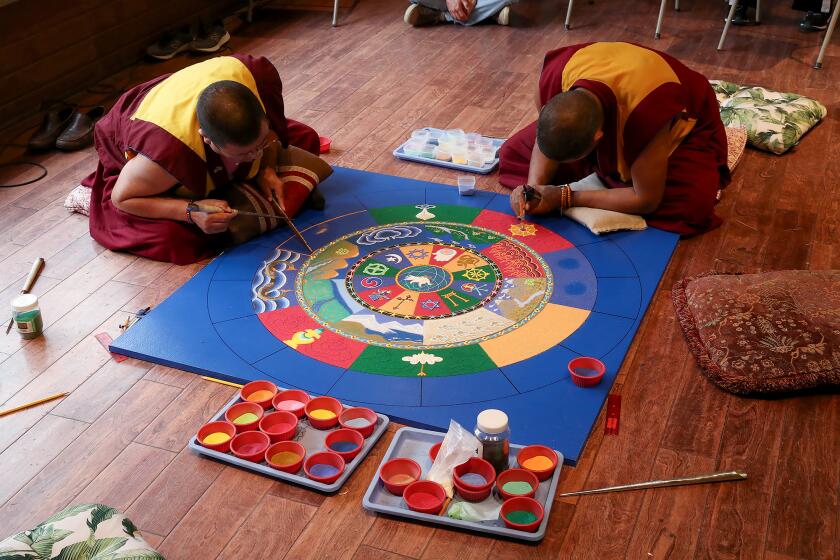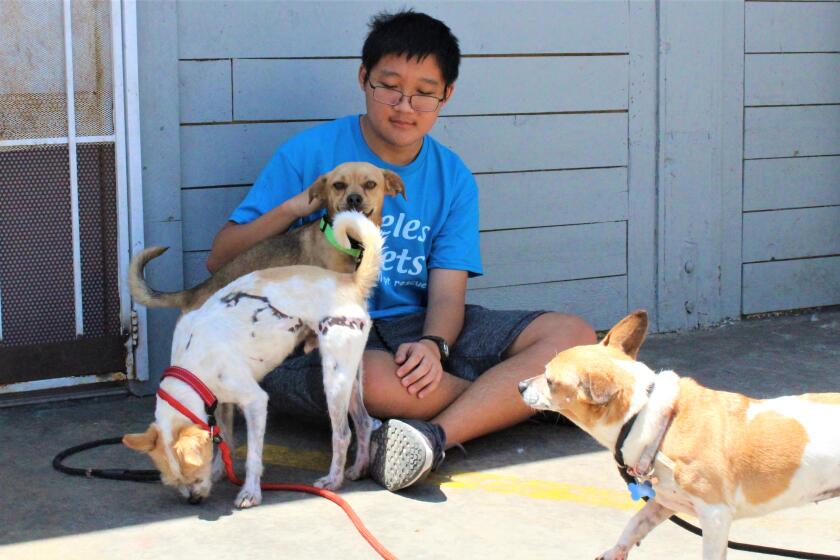City Lights: Time to leave the ‘colors’ out of voting
There’s a hilarious song by the Orange County folk singer Michael Ubaldini called “World Peace in 10 Easy Lessons,” in which the narrator journeys from one potential guru to another in hopes of discovering the secret to a strife-free world.
At one point on his quest, he listens to an actor on TV who ultimately disillusions him: “He said he wasn’t racist; we must be colorblind / Then he talked of red and blue states, drew a dividing line.”
Granted, separating people by the color of their state isn’t as odious as separating them by the color of their skin. But as one who gets wearier all the time of our two-party mentality, especially with the election weeks away, I have to say that Ubaldini makes a legitimate point. How many of us, taking a cue from the electoral college or not, label ourselves as “blue” or “red” without a moment’s pondering?
Since I cover local politics for Times Community News, I have to remain as neutral as possible on partisan issues. This column won’t be a discussion about my own party preferences. And frankly, I’m glad it won’t be, because I find them harder to specify all the time.
Try this test: Write down the three things you would most like to change to make America a stronger country. Heck, just write the one. Did you mark lower taxes? More money for public schools? Fewer guns? Less gun control? Guantanamo Bay closed?
Now match that one wish to the political party that most commonly supports it, and see if all your other beliefs adhere to that party’s line. In some cases, the links are logical enough. If you believe in freedom from business regulations, it may well follow that you believe in freedom from gun laws and freedom of school choice. If you believe in protecting the environment, that may easily segue into animal rights.
But if you support low taxes, does that automatically lead to opposition to gay marriage? If you believe in the National Endowment for the Arts, do you not believe in regime change? Constantly on Facebook this election season, I’ve been besieged with links to postings from the Being Liberal and Being Conservative pages. The former uses as its mascot a photo of Franklin Delano Roosevelt, the latter Ronald Reagan. Does anyone out there revere them both?
The key to tribalism is separation. If I wear an Angels jersey and you wear a Yankees jersey at a sports bar during the playoffs, we are hereby members of different groups. If my high school takes on yours in the academic decathlon, we root for the sides that were determined when our parents bought homes in different neighborhoods. Often, those divisions are exclusive things: If I attend one school, I cannot also attend another, and both of our teams can’t win the pennant.
Likewise, when we label people as Democrats or Republicans, we create all-or-nothing categories: We’re either for Obama or Romney, health reform and the Detroit bailout or low taxes and traditional marriage. As Ubaldini pointed out, those red and blue spots on the map can lead to plenty of stereotyping. But they also limit our choices quite a bit.
So here’s an idea (and of course, for the time being, it’s a blissful fantasy): How about if on the ballot, instead of officially labeling candidates by the names of their parties, we simply summarized their positions on gun control, taxes, marriage and every other burning issue, then let the voters pick according to their needs?
Given how our red and blue beliefs so often melt into purple, we might get some surprising votes. We might even get some surprising running mates.
Years ago, I debated politics with a peer whose father described her as so conservative, “she makes Genghis Khan look like a bleeding-heart liberal.” After praising the Bush tax cuts and other decidedly non-blue endeavors, she admitted that she refused to eat at Kentucky Fried Chicken because of how it treated its chickens.
So clearly, fiscal conservatism and vegetarianism were high on her agenda. Let’s see, there must be a match there somewhere. Could Paul Ryan and Dennis Kucinich take the White House in 2016?
City Editor MICHAEL MILLER can be reached at (714) 966-4617 or at michael.miller@latimes.com.
All the latest on Orange County from Orange County.
Get our free TimesOC newsletter.
You may occasionally receive promotional content from the Daily Pilot.



